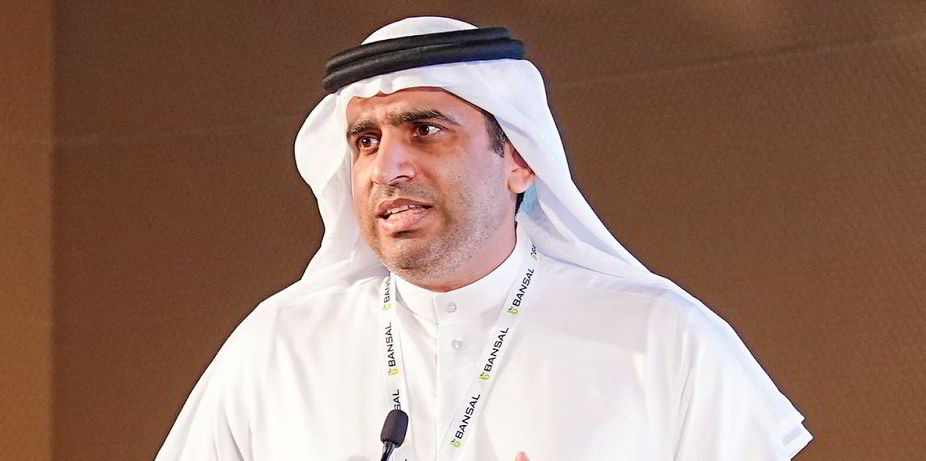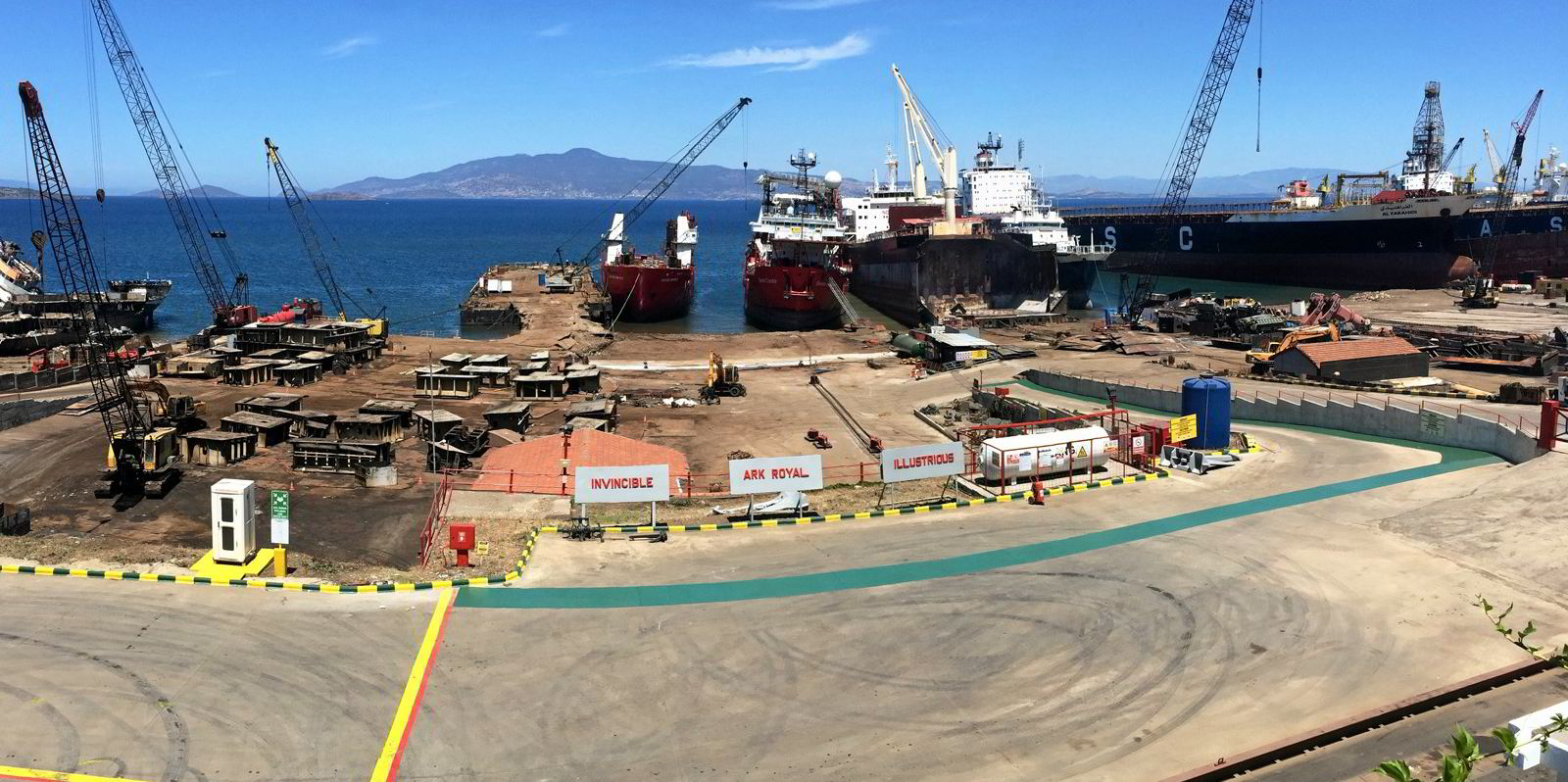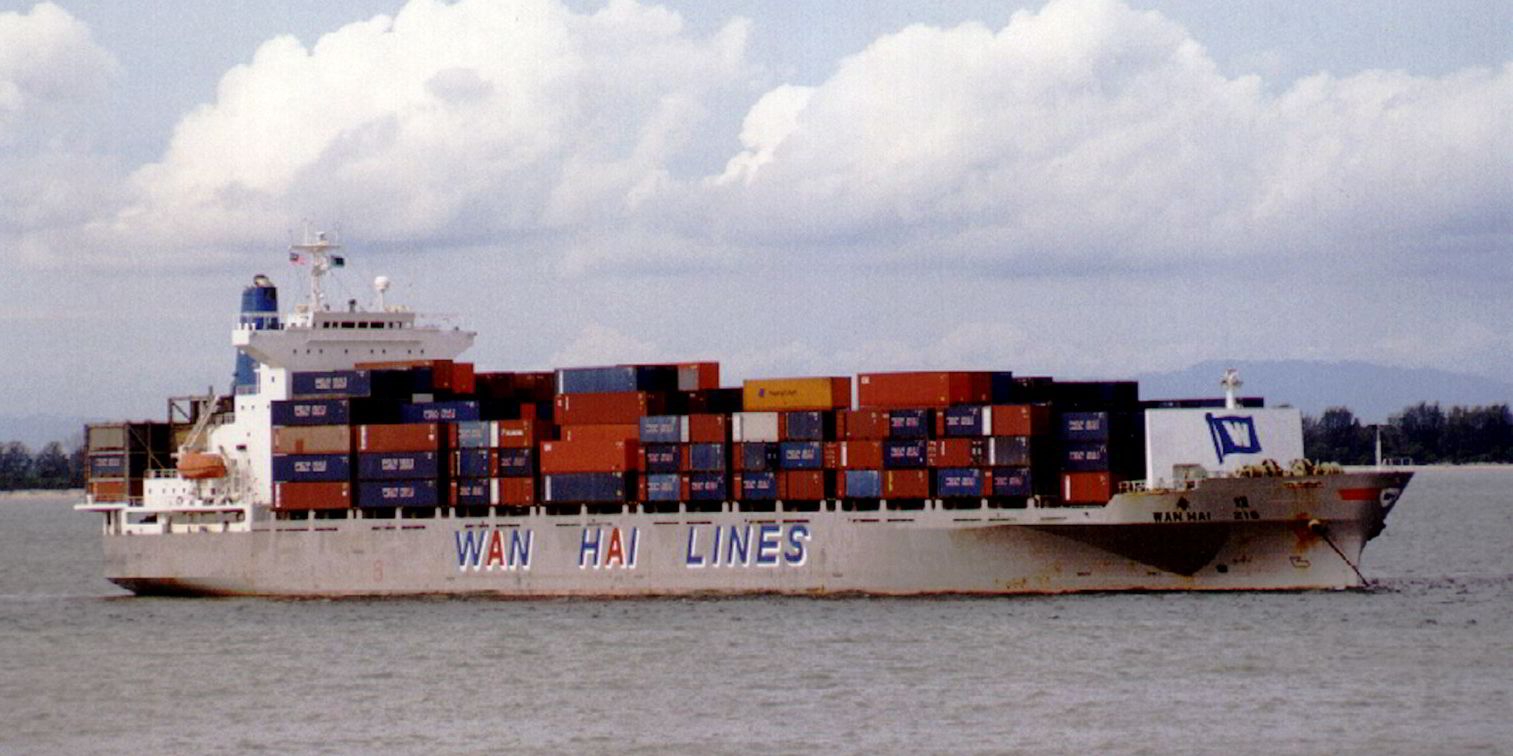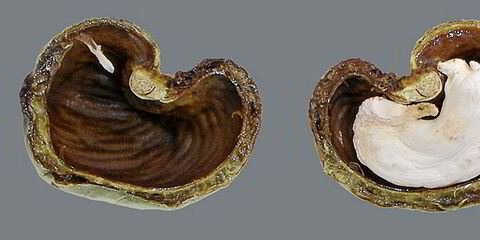The United Arab Emirates has introduced strict new ship recycling rules to avoid pollution that are well above the latest global rules that will come into force in 2025.
The UAE Ship Recycling Regulation, which was unveiled last week — and is seen as even more strict than that of the European Union — applies to UAE and foreign-flagged ships.
Captain Abdulla Al Hayyas, director of maritime transport at the Ministry of Energy and Infrastructure, told TradeWinds that the rules are so stringent because the UAE wants to “create a race to the top”.
“We view ESG concerns regarding ship recycling as genuine. We cannot have UAE vessels polluting in the UAE or elsewhere globally. We are sensitive to anything which hurts the image of the UAE,” he said.
The regulation, which goes into effect on 26 June 2025, bans the recycling sale or final voyage departure of any ship, regardless of flag, from a UAE port unless it is heading to a recycling facility capable of dismantling it in a dry dock or on an impermeable surface. That facility must also be approved by UAE authorities.
In short, it places an outright ban on ship recycling employing the beaching method used in India and Bangladesh, and the landing method used in Pakistan and Turkey.
Covered under the regulation are UAE-flagged ships; foreign ships recycled in the UAE; foreign ships where the decision to recycle the ship was made when it was in UAE waters; and foreign ships that have begun the final voyage for recycling directly from UAE waters, with or without any technical stops in between while en route to the recycling facility, or that have stopped at an UAE port or anchorage while on their way to the recycling facility.
Owners of UAE-flagged ships are prohibited from switching flags to recycle ships in facilities that do not meet the requirements.
“In the spirit of our legislation, we will take every step to plug any loophole that any potential violator might take,” Abdulla said.
Current legislation allows for the reflagging of vessels bound for their last voyage to South Asian beaches. This allows shipowners to deliver their vessels earmarked for scrapping to cash buyers based in the UAE. It is a loophole that has frequently been used by European shipowners as a way to circumvent EU regulations.
Dimitri Ayvatoglu, head of business development and external affairs at Leyal Ship Recycling Group in Turkey, described the UAE regulation as “going a step further than even the EU ship recycling regulation, at least on certain aspects”.
He said it is a “game-changer for the UAE being used as a hub for delivery and cleaning prior to recycling in the Indian subcontinent”.
Jasmin Fichte, managing partner of Dubai-based maritime law firm Fichte & Co, concurred.
“With the new UAE Ship Recycling Regulation, the government has put a stop to these practices,” she said.
“You also need to consider that this comes just two weeks after the new UAE Maritime Law has been issued, which will come into force end of March 2024. That law is finally opening up the UAE flag and also allows for dual-flagged vessels.
“With this latest ship recycling law, the government has made clear that they have no interest in attracting substandard shipowners.”
Fichte said it remains to be seen if South Asian ship recycling facilities will find it feasible to invest in dry-docking facilities to “stay in the market”.
“So far in the Middle East we do not have many scrapping facilities and it may be just enough time to attract investors and develop a UAE-based dry-docking facility,” she said.
“Looking at the large amount of tankers that will reach their end of lives in the next couple of years, I dare say that this would be a good investment.
“Cash buyers will need to adjust their practices, a new industry may develop in the UAE and Gulf Cooperation Council, genuine shipowners will certainly applaud this move, and for me personally, I am amazed [at] the confidence the UAE has developed as a leading maritime hub.
“It seems Europe can learn a few things from the UAE these days.”
Capacity question
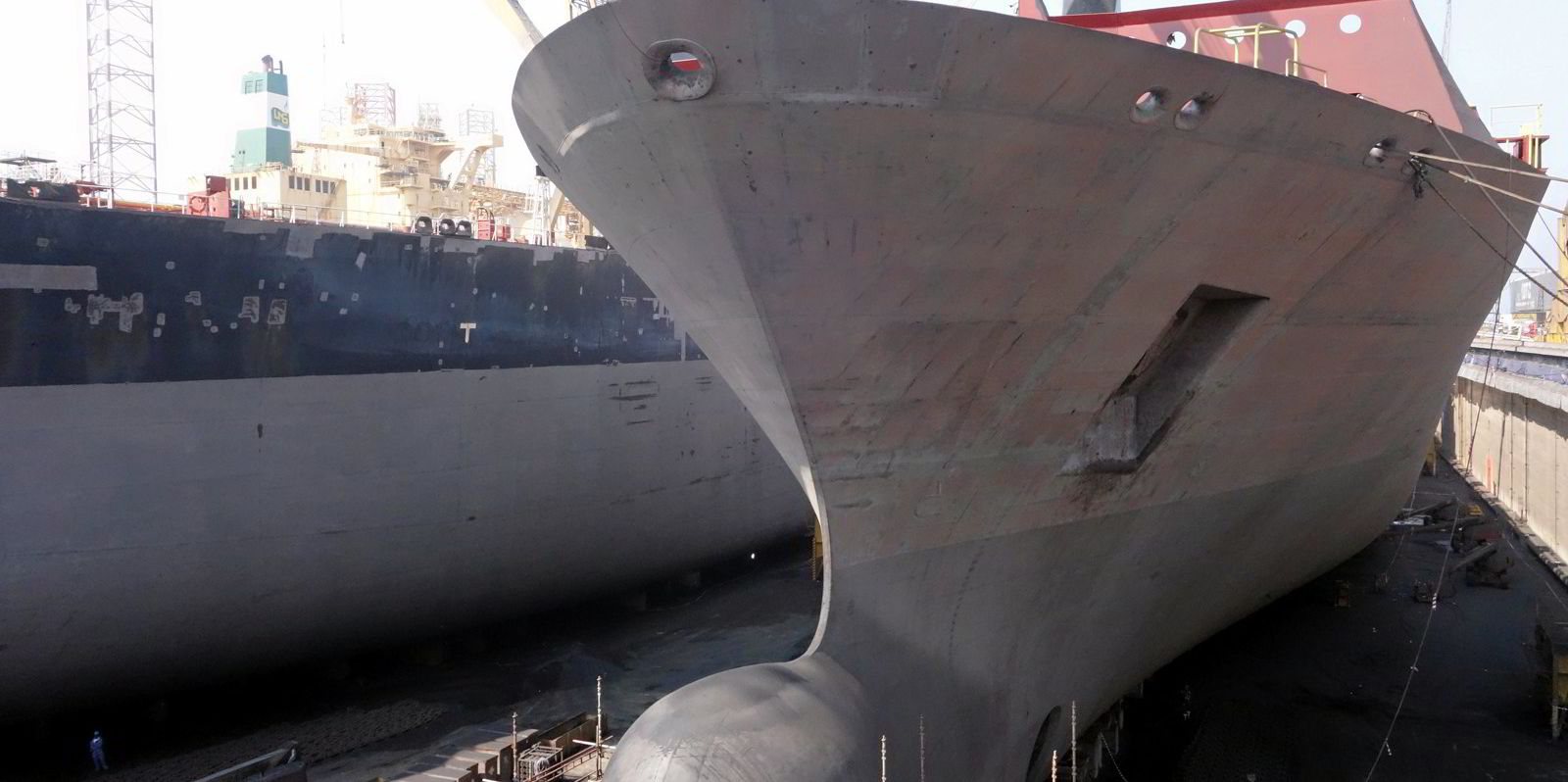
Abdulla recognises that very few recycling yards currently have dry docks.
“We realise there is a shortage of true green ship recycling capacity worldwide. It is true that even after years of EU ship recycling regulation and the drafting of the Hong Kong Convention, there are not enough compliant recycling yards,” he added, referring to the Hong Kong International Convention for the Safe and Environmentally Sound Recycling of Ships.
“Our answer to this is not by certifying landing and beaching but by helping to increase the global compliant capacity.
“We expect the UAE Ship Recycling Regulation, with its clarity, will encourage the growth of compliant ship recycling capacity. Responsible shipowners must have access to sustainable green ship recycling.
“Commercial considerations should not encourage tacit acceptance of substandard unsustainable practices. We do not see beaching or landing as a necessity. There are many yards which can accommodate recycling, and the hunger for green steel makes a good business case.
“We envisage our UAE Ship Recycling Regulation will empower banks and other ethical financiers.”
Abdulla said the UAE is open to compliant ship recycling yards with the required infrastructure along its shoreline.
The ship recycling regulation covers numerous other requirements, ranging from the need for UAE-flagged ships and foreign-flagged vessels calling at UAE ports to have on board a certified inventory of hazardous materials, ship recycling plans, to banning the installation of hazardous materials on board while in local ports.
